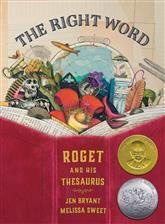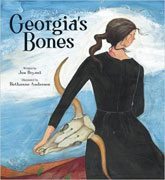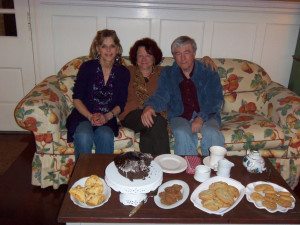by Jen Bryant
 Several months ago, I was asked to be on a panel for a new-writers workshop. During the question and answer period, one woman commented: “I keep hearing that writing is a craft that requires time and practice to master. I get that … but as someone who’s eager to be an apprentice but has neither the time nor money to enroll in an MFA program, how — exactly — do I go about finding someone who’s qualified, willing, and available to mentor me?”
Several months ago, I was asked to be on a panel for a new-writers workshop. During the question and answer period, one woman commented: “I keep hearing that writing is a craft that requires time and practice to master. I get that … but as someone who’s eager to be an apprentice but has neither the time nor money to enroll in an MFA program, how — exactly — do I go about finding someone who’s qualified, willing, and available to mentor me?”
It was a great question — one which we took turns answering, based on our unique personal experiences. That panel made me recall the details of my own (very long, circuitous road) to becoming a published children’s author, and how I found my own “Master writers” from whom I learned a great deal about the art and craft of writing. This is what I told her .… .
After spending the first seven years after college as a French teacher and H.S. X‑C coach, I began my writing life almost by accident: We relocated in the middle of the school year and I suddenly had no full-time job. I continued to teach part-time, but I also began some freelance writing. I wrote magazine articles and book reviews and compiled quotes for a gift-book company.
At first, I got by using the “trial and error” method (accent on the error!) and working on my own when my baby daughter napped. In college, I’d majored in foreign languages, not English or Creative Writing, so while I had no formal training, I also had very low expectations. In retrospect, this was an advantage: I had no preconceived notions about what was “acceptable” and so moved freely between genres and formats — experimenting, failing, and trying again. That got me through the first couple of years … but I got to a point where I wanted to write better.
 I’d published several essays and reviews in literary magazines and I was reading a lot of poetry (and trying to write my own), when I stumbled upon my first professional mentor. While attending a reading at a Philadelphia bookstore, I saw a flyer for a workshop run by a local poet-professor. Disappointed that I couldn’t make the scheduled classes, I asked her if, instead, she’d be willing to meet me for twice-a-month tutoring sessions. She agreed, and thus began my first true writing apprenticeship, held in a bakery on South Street (I can still smell those cranberry scones!)
I’d published several essays and reviews in literary magazines and I was reading a lot of poetry (and trying to write my own), when I stumbled upon my first professional mentor. While attending a reading at a Philadelphia bookstore, I saw a flyer for a workshop run by a local poet-professor. Disappointed that I couldn’t make the scheduled classes, I asked her if, instead, she’d be willing to meet me for twice-a-month tutoring sessions. She agreed, and thus began my first true writing apprenticeship, held in a bakery on South Street (I can still smell those cranberry scones!)
It would take me pages to explain what I learned from her, but suffice to say that despite my being a “published author” I knew in my heart that I was just starting to learn how to write. She assigned monthly readings, critiqued my poetry drafts, shared her own drafts and finished poems, and answered hundreds of questions.
When she moved away for her job, I continued my writing apprenticeship with another Philadelphia poet. His style was very different, but that stretched me in new directions and made me experiment even more. I learned so much from him, that when he, too, moved on to a new job in Colorado, we continued to exchange work by mail. [** I should note that neither of these poets wrote for children, and that nearly ALL of what I read and wrote while working under their guidance was aimed at adults, not kids. Nonetheless, everything they taught me has influenced and improved my writing for young people.]

About this time, I got to know Jerry and Eileen Spinelli, who lived nearby and whose books I’d admired for years. As our friendship grew, they became mentors of a different sort, answering questions about picture books (Eileen convinced me to turn one of my “art poems” into my first picture book, Georgia’s Bones), editors (Jerry connected me with his editor, Joan Slattery at Knopf, who became my editor for the next decade), and bolstering my spirits through the inevitable ups and downs of book publishing. Where my previous mentors had been about skill development, the “nuts & bolts” of craft, the Spinellis were more like gear-greasers, facilitating my foray into children’s literature and cheering each small success.
I was lucky to find these people, I know — but I believe I also made my own luck: I created a workshop tutorial where there was none; I persevered in my apprenticeship through changes in logistics, geographical distance, and personal/ family demands — and I made my writing life a priority.
I truly believe that, with a little persistence, anyone can find a writing mentor, someone (or a series of someones) who can be both Teacher and Guide on their otherwise solitary journey.

Your comment about making your own luck is so true, Jen. It was your dedication and persistence that has made you such a well-respected children’s author. It’s good for us to hear how long and how much work your journey required.